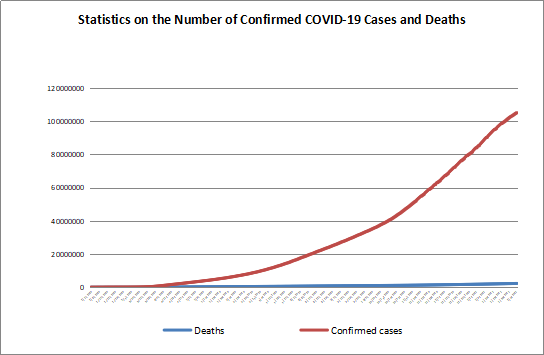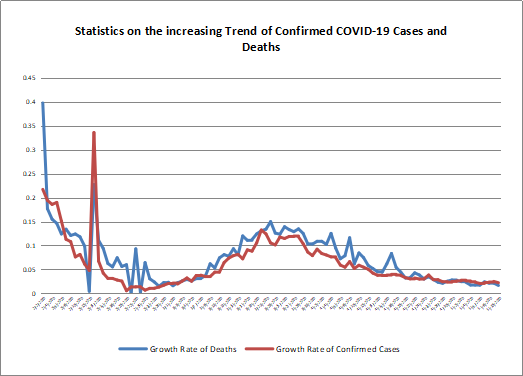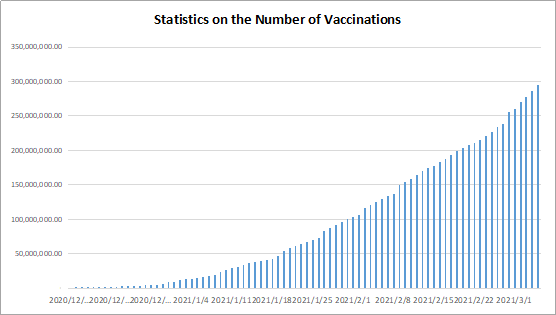WTO Held a Global Supply Chains Forum to Discuss Solutions to Supply Chains Disruption
Time:2022/03/31 BJT
1. Key concerns
The World Trade Organization (WTO) held a Global Supply Chains Forum with the theme “Easing Supply Bottlenecks for a Sustainable Future” on March 21, 2022. WTO members and shareholders from every part of the global supply chain shared perspectives on the causes of supply chain disruptions, and collectively identified the interventions and innovations needed to ease the disruption and price hikes on global trade.
At the forum, representatives actively expressed their views on the causes of supply chain disruptions. Participants underlined that the COVID-19 has caused continued supply and demand pressures, congested ports, shipping logjams, rising inflation and increased freight rates that are disturbing global trade. The conflict in Ukraine has also led to severe disruption of supply chains particularly in grains, metals and energy products. Other major factors hampering supply chains were labor shortages, land-based bottlenecks and underinvestment in infrastructure.
Representatives from the private sector suggested that government actions which restrict the flow of goods, services and date have also contributed to sclerotic performance of global supply chains. Medium- and small-sized enterprises had less bargaining leverage, resulting in their subsequent disadvantages in transport and logistics markets. Moreover, the supply chain disruptions jeopardized the flow of goods across the world, and weigh negatively on the post-pandemic economic recovery, particularly on poor countries, small and vulnerable economies, and landlocked developing countries.
Taking into account the above mentioned, a broader and deeper investment in digital technology including blockchain and robotics is one key to relief global supply chain congestion. To develop digital technology, we should actively play the role of market and use investment tools to promoting the diversification of markets and investment, both public and private.
WTO Director-General commented the above issues in her remarks to the forum. She noted that WTO provides a unique platform for global dialogue on supply chain issues. As early as the beginning of the COVID-19 pandemic, WTO actively helped governments and business identify bottlenecks and reduce export restrictions affecting the production and distribution of COVID-19 vaccines. Nowadays, supply chains needs to fit the current situation, strengthening the construction on infrastructure and supporting facilities to cope with sudden changes. The current system “was not built for a world where a climate disaster can interrupt factory operations worldwide, or a microscopic virus can upend the movement of goods, services and people almost overnight,”This is no case for retreat from trade, which helps us to adapt to those and other shocks.
The Director-General added that even before the outbreak of war in Ukraine, supply chain disruptions caused by the COVID-19 pandemic and stimulus-driven demands for goods were weighing on global trade, economic growth and price stability. The supply chain crunch hit smaller firms particularly hard, given their narrow margins and more limited financial resources. Poor countries, small and vulnerable economies and landlocked developing countries risk being pushed out of global value chains, or finding it harder to break into them.
To address those issues, the Director-General noted that WTO will bolster supply chain infrastructure by enhancing trade facilitation, supporting the quick clearance of goods at borders and promoting further liberalization of trade in transport and logistics serves.
2.Briefing on COVID-19 Pandemic(Issue No.185)
According to WHO statistics, calculated numbers of confirmed COVID-19 cases and deaths reached 470,839,745 and 6,092,933 by March 22, 2022. South Korea, Vietnam, Germany, France and the UK were the five countries (regions) with the highest number of new confirmed cases in the past seven days. South Korea, Vietnam, Germany France and the UK were the five countries (regions) with the highest number of new deaths in the past seven days.


https://covid19.who.int/
WHO released a new operational guide to promote COVID-19 vaccination uptake and tackle vaccine hesitancy among refugees and migrants. Statistics from Our World in Data, an online research site of the University of Oxford, presented that 11,014,706,692 doses had been administered globally by March 21, 2022. On March 14 2022, WHO released Strengthening COVID-19 Vaccine Demand and Uptake in Refugees and Migrants, a new operational guide aimed to promote COVID-19 vaccine uptake and tackle vaccine hesitancy among refugee and migrant populations through a range of operational measures. This guide identifies seven priorities areas for interventions for policymakers, planners, and all stakeholders responsible for COVID-19 vaccine rollout: (1) Social and behavioral data collection and use to understand barriers to vaccination uptake and make targeted strategies and communication plans. (2) Coordination, policy and planning to reduce disease and death burdens of COVID-19. (3) Implementation of communication strategy including a mass media plan to ensure refugees and migrants are aware of when and where to get vaccinated, its benefits and safety, requirements for vaccination and changes in policies and practice. (4) Social media monitoring and misinformation management to prevent the spread or inaccurate information. (5) Community engagement and social mobilization to increase trust and social cohesion, and reduce the negative impacts of COVID-19. (6) Capacity-building and training to enhance capacity of health systems and provide health literacy education programmes regarding health services to refugees and migrants. (7) Monitoring, learning and evaluation of activities linked with the National Deployment and Vaccination Plans, to show the effectiveness of interventions during the vaccine rollout and to correct where needed. According to the report, refugees and migrants may face a range of individual, social and physical barrier that underpin their decisions, motivation and ability to receive COVID-19 vaccine and may result in transmission, severe disease and death.

https://ourworldindata.org/covid-vaccinations
In terms of the restrictions taken by countries (regions), there are different levels of measures adopted against COVID-19. Most countries (regions) gradually relaxed their prevention measures while a small number of countries (regions) chose to roll out the fourth dose of vaccine. In America, Canada's Chief Public Health Officer said that Covid-19 policies may soon shift from “an emphasis on requirements to recommendations”. In Europe, the National Healthcare Service (NHS) in the UK announced on March 20 that it will roll out the fourth dose of COVID-19 vaccine for elderly and immunocompromised people, covering around 5 million nursing home residents, elderly people over 75 and immunocompromised people. The Public Health Commission of Spain approved the update of the COVID-19 Surveillance and Control Strategy, which states that mild and asymptomatic confirmed cases will not to be isolated and will take effect from March 28, local time. The Italian Prime Minister announced on March 17 that the national state of emergency for COVID-19 pandemic will officially end on March 31, and the current green pass system and indoor mask mandate will continue until April 30. In Asia, the Korean government has stated that the mortality rate of the COVID-19 is gradually decreasing to the level of seasonal influenza, and will therefore consider adjusting its infectious disease status. At present, COVID-19 is a Class 1 infectious disease and must be declared as soon as it is detected. If the ranking is lowered, there will be changes in the reporting obligations and medical expenses. The Japanese government announced on March 16 that it will roll out the fourth dose of COVID-19 vaccine by purchasing an additional 75 million doses of Pfizer vaccine and 70 million doses of Modena vaccine, a total of 145 million doses, which are expected to be imported after July.


